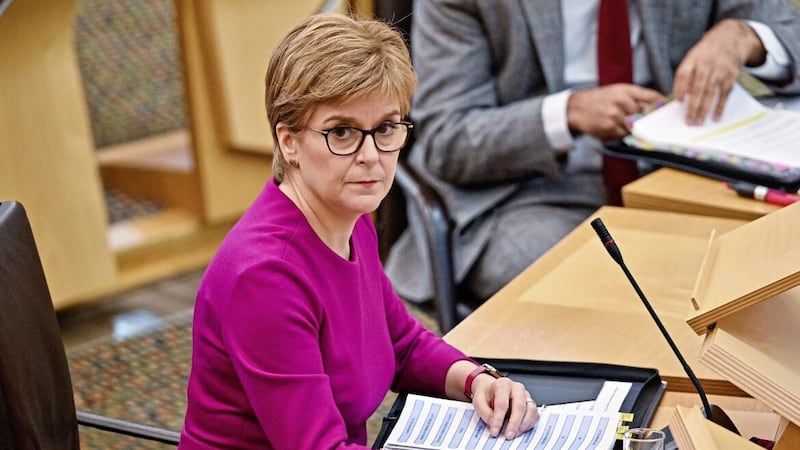So no surprises there. The British Supreme Court was expected to rule that the Scottish Parliament did not have the right to hold a referendum on independence; and that is what it has done.
The Supreme Court is not in the business of dismantling a constitutional settlement the court is there to uphold.
One thing is certain, however. If things carry on as they are now, Scotland will be independent within a generation. I suspect the break will come before Irish unity is settled. Indeed, it is quite possible that Scotland’s departure from the union will be the trigger for a united Ireland.
As is the case with Northern Ireland, Scotland has been governed by successive Westminster governments which do not have a mandate there.
The Supreme Court decision underscores the right of the current Conservative government to decide whether or not a referendum can be held. Yet the last time the Conservatives had a majority of seats in Scotland was 1955 – do the maths.
Labour currently has only one MP in Scotland.
If ever there was evidence of a democratic deficit in Scotland, this is it.
Devolution has helped address this shocking hole in the heart of the British constitution, and successive Scottish governments have been able to mitigate to some degree the negative impact of Westminster rule. But devolution does not give Scots enough levers to determine their own destiny. And, as the Supreme Court has shown, their right to self-determination is subject to the whims of English voters.
That deficit is not just theoretical. Scotland (like Northern Ireland) was forced out of the European Union against its will. As we have seen, Brexit has had a devastating impact on living standards and on the ability of businesses to trade freely with one of the world’s largest markets.
Although I am confident that Scotland is on the road to independence. There are still significant hurdles. The Scottish National Party may be dominant in the Scottish Parliament and it has consistently returned a majority of Scottish MPs in Westminster, but there is a substantial pro-union vote in Scotland.
The Scottish media is also solidly pro-union, with the commentariat vehemently anti-nationalist.
That said, since the 2014 referendum, confidence in the union has been undermined by catastrophic misrule by successive Conservative governments. I know many who voted for the union in 2014, and who have now changed their minds.
Demographics is with the SNP too, it has significant support among younger voters who do not share the same affection for the status quo as many older voters.
The referendum – and there will be one at some point regardless of the Supreme Court ruling – will be won by mobilising younger voters, and by persuading the soft pro-union vote that they are better off being governed from Holyrood than Westminster.
One of the things undermining that soft pro-union vote is the boorish behaviour of Westminster politicians who regularly abuse Scottish MPs in parliament; and the disrespect shown to the devolved government by successive prime ministers – most notably Johnson and Truss.
It’s too early to judge Sunak, but at least he had the decency to contact the first ministers of Scotland and Wales on his first day in office. If he wants to save the union, he will do it by ceding more power to the devolved administrations rather than less.
On the eve of the 2014 referendum David Cameron, Nick Clegg and Gordon Brown made a pledge to voters in Scotland that they would get even more say over their own destiny. This offer of ‘devo-max’ was never fulfilled – another breach of faith with the Scots.
More power for Scotland would also mean more accountability for how that power is discharged by the Scottish government. The SNP government is not a paragon of good governance. Serious questions have to be asked about their management of the National Health Service and a failing education system.
But currently the SNP government is able to take the credit for successes and pass the blame for things that go wrong to Westminster. The Conservatives don’t have the intelligence or the guile to grasp that.
The simple truth is that the biggest threat to the union comes from unionists (something familiar to people in Northern Ireland). Nicola Sturgeon currently has a mandate for a referendum, and will have one after the next general election which comes within the next two years.
That mandate cannot be ignored for ever, nor should it be.









